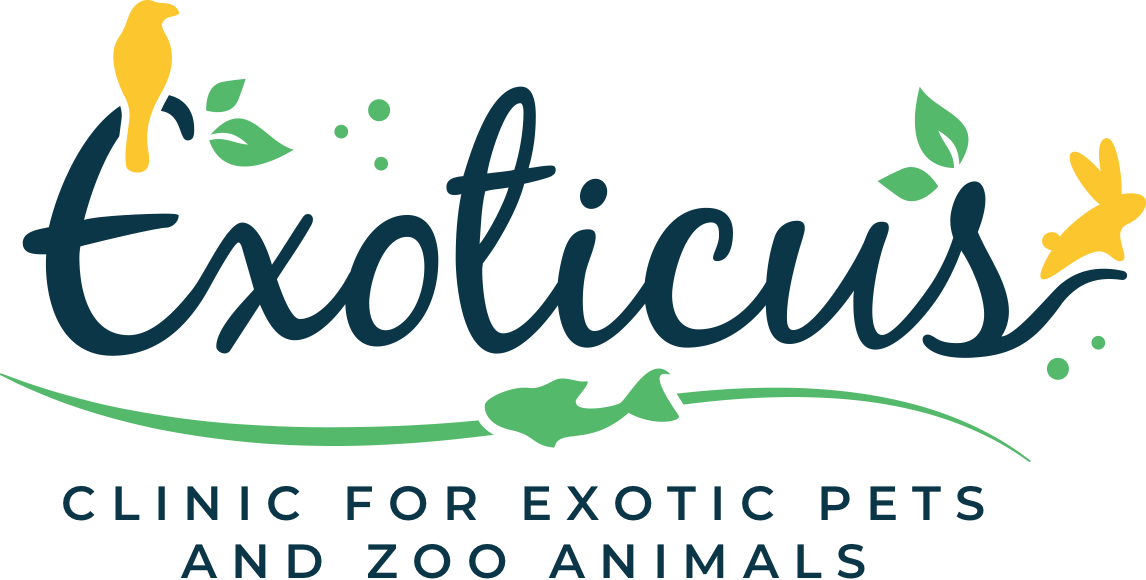Reptiles
Reptiles have special needs in terms of housing and diet, but there are also a number of things that have to be taken into account during the examination in the veterinary clinic. Ideally, reptiles are transported in a temperature controlled transport crate so they don't cool down during transport. This makes it easier to evaluate the health of the animal.
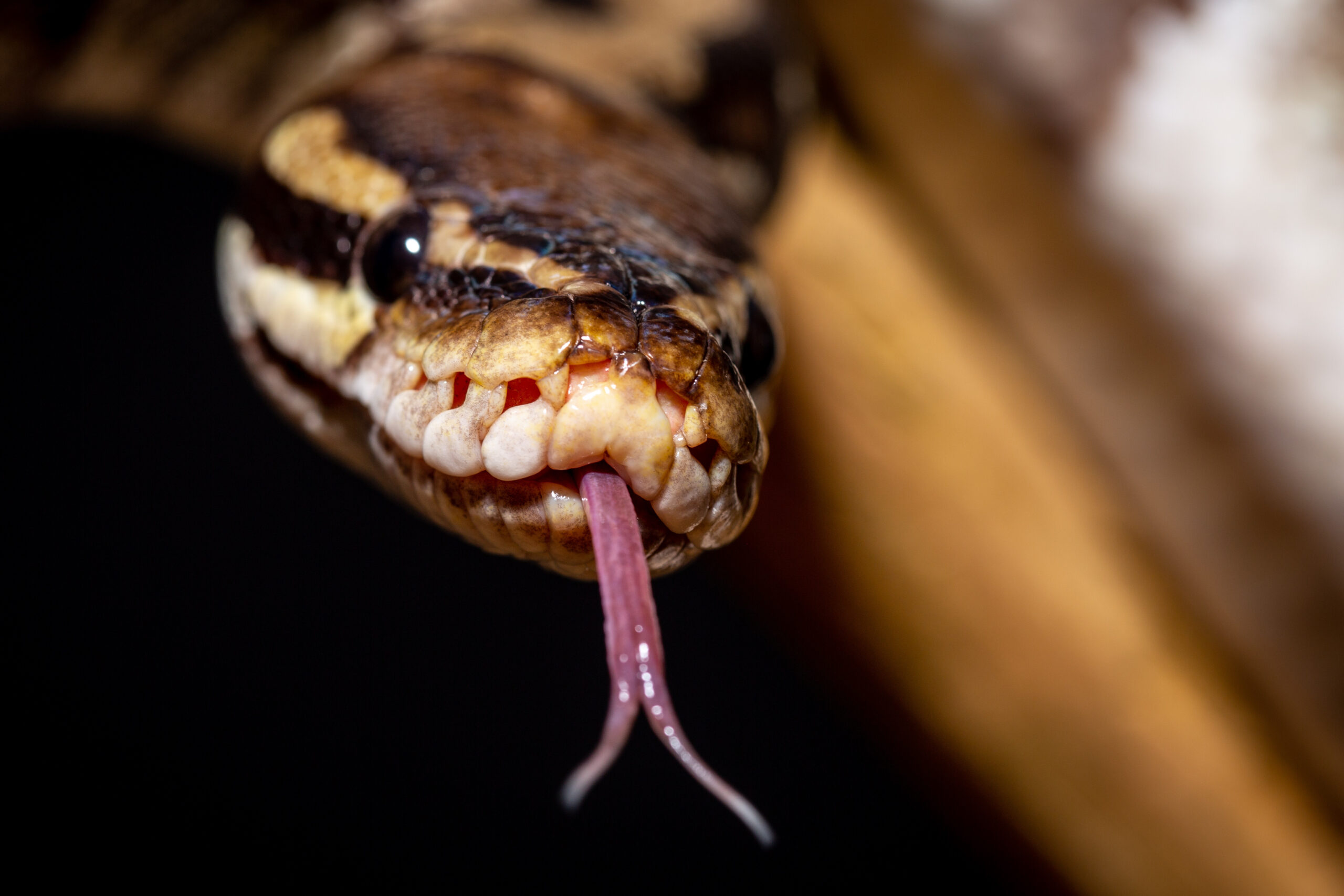
Housing and diet
We are happy to discuss housing and diet requirements of your reptile. Temperature, humidity and appropriate UV radiation directly impact the health of many reptiles.
Prevention and health check
We recommend annual health checks for your animals. This facilitates early disease detection, which is particularly important in stoic animals such as reptiles, which often show clinical signs late in disease processes.
- Blood test
- Fecal examinations
- Dental examinations, esp. in bearded dragons
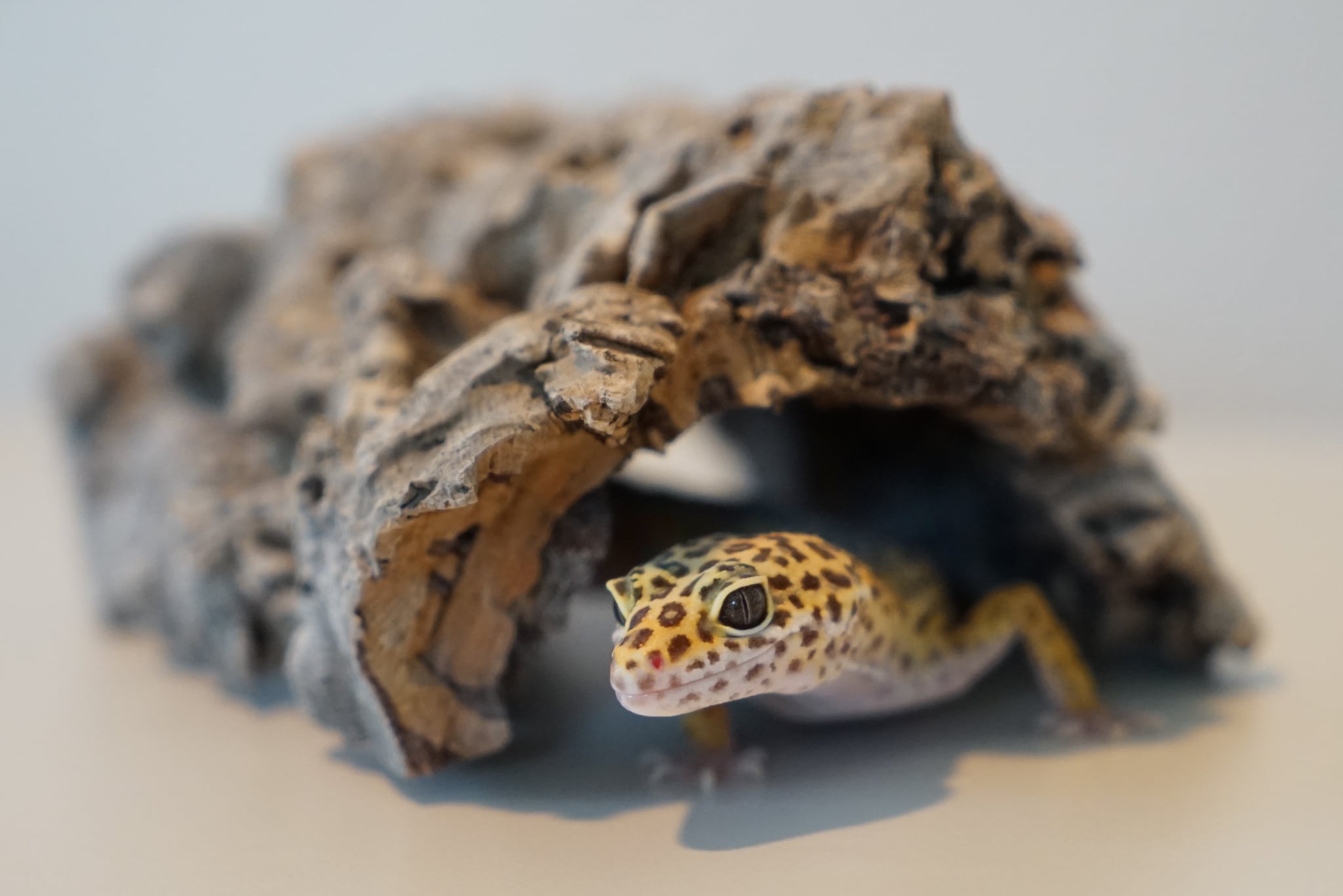

Diagnostics
We offer a wide variety of diagnostic tests, which are tailored to the needs of your reptile.
- Digital x-ray
- Ultrasound
- Blood test (incl. ionized calcium)
- Fecal examinations
- Endoscopy and much more...
Surgery
We carry out all routine operations but also specialized surgeries.
- Spay and neuter
- Abdominal surgery in turtles and tortoises, usually performed endoscopically
- Surgical interventions for egg binding and much more ...
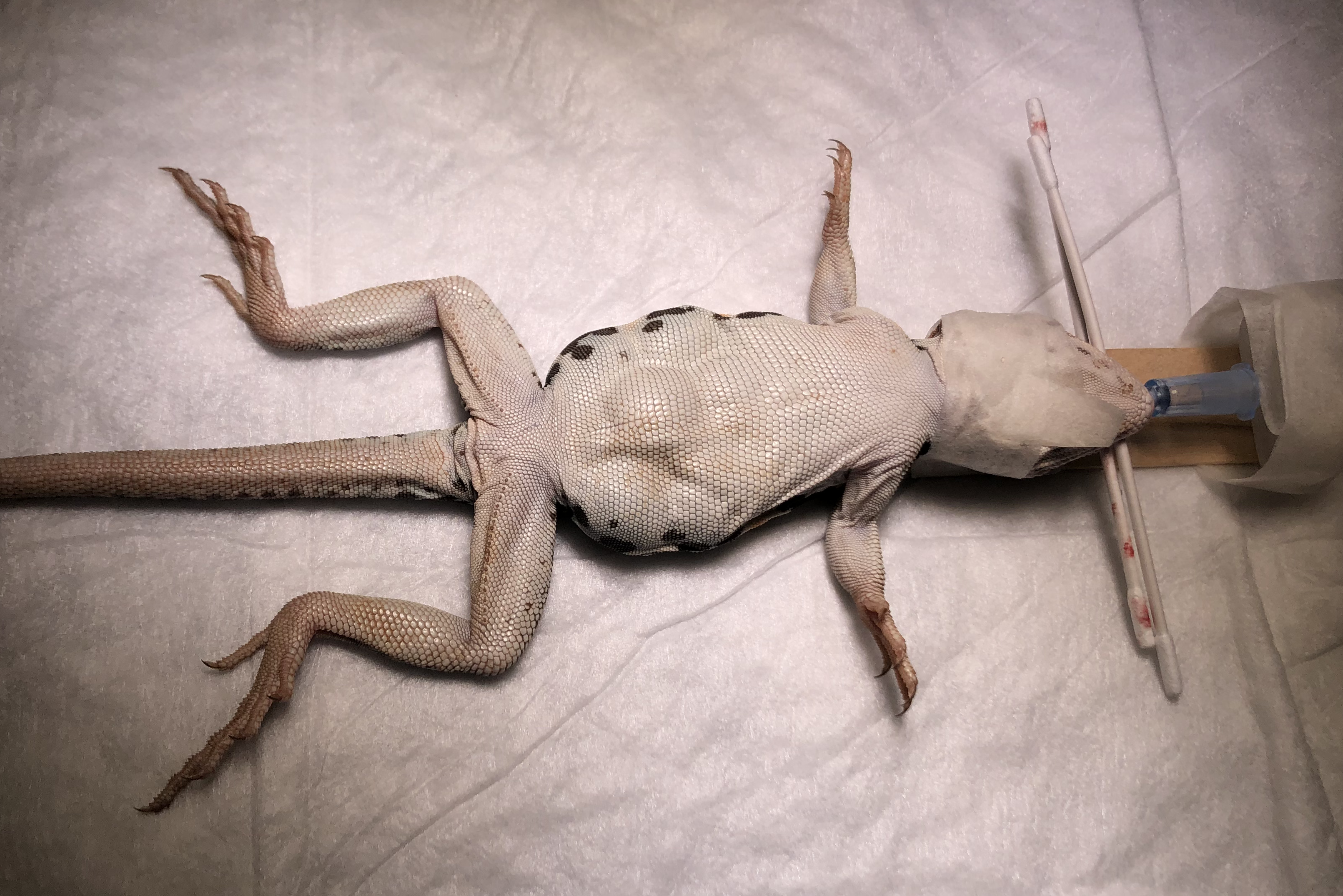
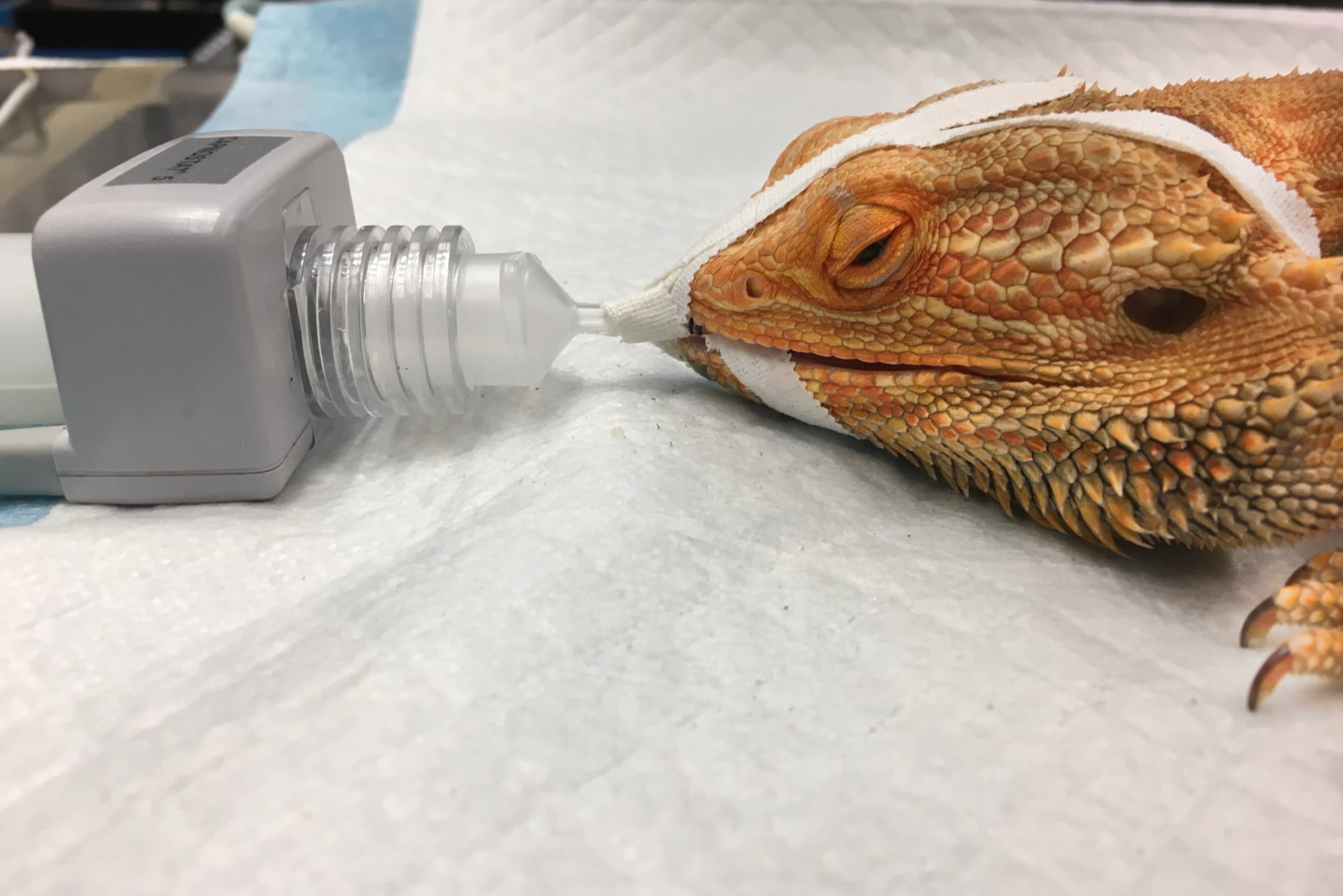
Anesthesia
Many small surgeries can be performed with light sedation and local anesthesia. It is important however, to ensure that pain medication is used appropriately in reptiles, as pain is not as easily recognizable in reptiles as it is in mammals.
For longer surgeries the animals are intubated and provided with intravenous fluids, if their body size allows it. Because reptiles have a very slow metabolism, breathing often slows down during prolonged anesthesia. In order to ensure a sufficient supply of oxygen despite slower breathing, we have special anesthesia machines that monitor the metabolism and, if necessary, support breathing.
